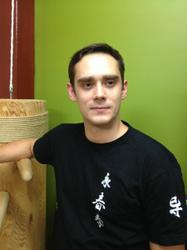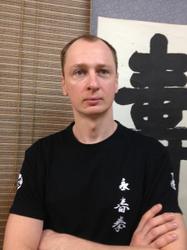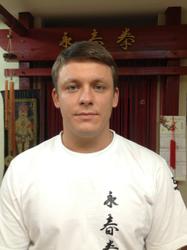Zen and Life
When I was in high school I always thought my teachers were very old. At the time, though, they were only in their early thirties. Later, while on army service, I was very surprised to see some of the older officers were able to keep up with younger soldiers during some very intensive physical training. That experience made me realize the relativity of the age concept; those who take care of their bodies and minds are able to stay young despite their age.
I am familiar with many young people who grew old prematurely as well as numerous older people who appeared much more youthful than their age. I go to my film collection every now and again to watch films about outstanding older people who I am familiar with. I am often inspired by the way martial arts Masters and Zen Buddhist followers manage to effortlessly combine their spirituality with their technical skills. It is not physical combat which they believe to be the most difficult fight for man, rather the confrontation with inner forces tending to carry him away from harmony with the Universal Spirit.
It can’t believe my own eyes when I see these older gentlemen easily repelling numerous attacks of the younger and stronger fighters and then getting the upper hand on them! I admire their technical skills but it is the fortitude of their spirit which I admire the most; they do not allow their bodies and minds to be influenced by their age.
Many of the Zen Masters I am acquainted with or of whom I read about are in their declining years but they all seemed to have one quality in common besides their unbelievable abilities. These venerable men proved that the ancient philosophy is available for anyone to learn regardless of age. This is the knowledge I would like to possess in my declining years. For many years I have been keeping a journal containing the knowledge I have learned from books, from the Zen Masters I have met and the practices I’ve been trying to follow. From this I advise my sons and other young men. Following now are some precepts to what we have been discussing:
- Set a daily workout routine. You should exercise daily to keep your body flexible, mobile and in shape. My recommendation for children is to participate in sports regularly. Those young people who used to be active children should keep on doing easy exercises on a regular basis, e.g. cycling, swimming, tennis or golf. An occasional workout in a gym can be very useful for them if possible. Gichin Funakoshi kept working out every day even in his late eighties.
- Everything in moderation. It is very important to understand that one’s body and metabolism change as one grows older. As a young man, I could afford to grab some lunch on the run’ or have a bite at the first fast food outlet that I came across until I found that it actually caused a decline in my workouts as well as my muscle tone. My life changed dramatically both physically and mentally after I realized the importance of selecting the right food with which to nourish my body. It is a fact that the majority of those young people who maintain poor eating habits will be faced with over-weight problems at a mature age.
- Choose plain and nutritious food. Keeping one’s meals regular and avoiding overeating is very important. Moderation is the key to a long and healthy life, in my opinion. You should finish your meal feeling a bit hungry. Eat slowly; keep in mind that it takes your brain 20 minutes to realize when you are full. Table manners and enough water is another way to prevent gaining excess weight.
- Spending moments of silence during the course of a day on introspection and meditation or even a nap will recharge your inner batteries. Having an afternoon nap is good, even for young people, in my opinion.
- Spending time with good friends makes you relax irrespective of your age. You may expand your horizons on communicating with positive thinking’ people. At the same time avoid negative thinking people and negative ideas.
- Keep your mind open to learning new principles and ideas regardless of your age. One of my favourite stories is about a scientist, who went to a well-known Zen Master in order to discover the way to enlightenment. While the Master poured tea, the scientist was only talking about his own ideas with the sole intention of amazing the Master. The Master kept on pouring tea until the cup overflowed. On seeing this, the scientist exclaimed, “Master, the cup is full!” “You resemble the cup!” was the Master’s reply!
- Do not condemn. It is easy to say but quite hard to do, especially if you feel you possess an advantage of wisdom because of your age or experience. Zen Masters were the first to advance the idea that everyone should grow a third ear’ to be able to hear what is meant to be said as well as what is actually said.
- Listen to your heart. Zen Masters believe intuition, as the opposite to intelligence and rationality, to be shortest way to comprehending the truth. Thanks to Zen, I learned to listen to people with my mind open without interrupting them or using some prepared answers. I listen to them not only with my mind but also with my heart and my inside’.
- Your attitude does matter. I have an eighty-year-old friend who has been completing a 5-mile walk daily since he was a child, no matter what the weather is. Several years ago, when he retired, his family tried to talk him out of the habit by claiming it would be better for him to play golf, e.g. riding a golf-cart from one hole to the next. My friend refused their advice. “I have occasional pains but if I quit walking for even one day a week my mind will convince me that I am old,” he told me, “You are only as old as you feel.” Another old friend of mine retired not long ago at the age of 65. As a retiree he broke all of his old habits, e.g. playing tennis, swimming, even communicating with his old friends because he felt that he no longer had anything in common with them. He thought this new behaviour was natural for his new status. He has been a retiree for just three years now, but he looks like a much older man today because his only pastime is going to the bookshop to look for a new bestseller.
- Take things as they are and accommodate yourself to them. The I Ching, or Book of Changes’, is often regarded as the perfect example of such accommodation. Life observation and movement according to the course of life is the core topic of the book. The main principle of the I Ching is that everything may become a source of conflict or threat and, consequently, of violence if approached when its strength is at the highest level. Every event and situation should be approached properly either from the side or before it gains its maximum strength. The I Ching advises those who have to face a straight-line force to stay either ahead or on top of it until it weakens inevitably, as all forces do. The period when I studied the book coincided with my first surfing lessons. During surfing lessons I discovered that the only way to avoid falling was to stay a little ahead of the wave. Too far ahead and I will lose the wave and inevitably find myself under water! On the other hand, if I let the wave overtake me, I will get behind it and be too slow to catch it and be ultimately wiped out. As I grew older I gained the wisdom that everyone should accept the inevitable and be able to tell the difference between the avoidable’ and that which is inevitable’. My everyday life has improved considerably after I comprehended the principle and began to put it into practice. My mind cleared, I am no longer tense, I sleep well and my relations with other people have improved immeasurably.
- Admit your mistakes. It is very hard for most of us, no matter what age, to admit our opinions or assertions to be wrong. The older we get the more obvious the above statement is due to the widespread notion that wisdom comes with age. There is no doubt that a parent is much more experienced than, say, his or her child but it is very hard for adults to admit to making wrong ascertains about people or situations. Admitting one’s mistakes, I believe, is much wiser than persisting with a false assertion. It is also very important to learn to take responsibility for solving problems caused by your mistakes.
- Do not look for excuses for failures. Zen Masters believe that those who do their best, without worrying about something they didn’t or couldn’t do, ultimately find peace of mind. Listening to people making such excuses for their failures like I could have’, I should have’ or if…not’ is disappointing. There are too many young people who use such excuses every time they fail in their studies or other activities while the truth is that they didn’t work hard enough to succeed.
- Do not let material comforts and wealth prevail. In today’s materialistic world, many young people have grown up with the intention to succeed quickly. It is difficult for them to accept this principle, but it is a fact that the health and love of one’s family and friends are the most valuable of all gifts. Many adults also believe material wealth to be more important for their sense of self-esteem than the health and non-material well-being of themselves and those around them.
- Stay open-minded. Be ready to accept changes and new possibilities regardless of your age. Something that originally seems to be a deviation from the accepted course may prove to be the shortest way to your goal.
- Make new friends. Be ready to make friends with a stranger since he or she might change your life or teach you something new. Young people tend to avoid making friends with people unknown to them because they fear they may be rejected. Many older people also keep away from strangers who could make his or her life richer.



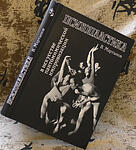

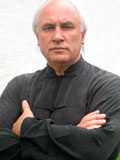 Коан – вопрос к членам Федерации Юн Чун Цюань от президента В.В. Мартынова: «Что Вы сделали для Федерации из того, что не мог бы сделать любой другой за деньги?»
Коан – вопрос к членам Федерации Юн Чун Цюань от президента В.В. Мартынова: «Что Вы сделали для Федерации из того, что не мог бы сделать любой другой за деньги?»
